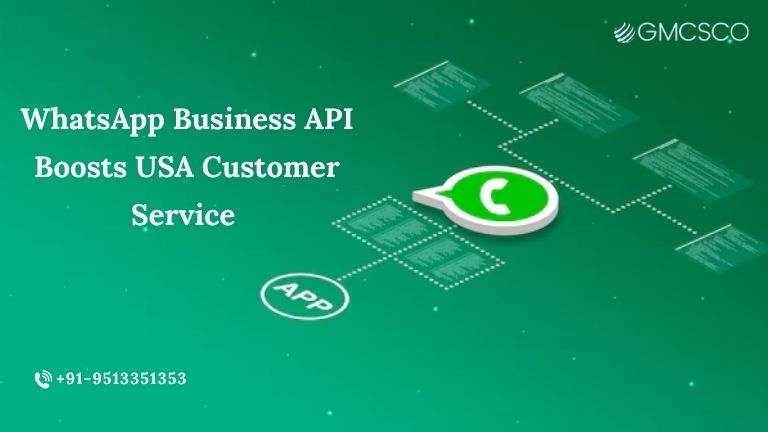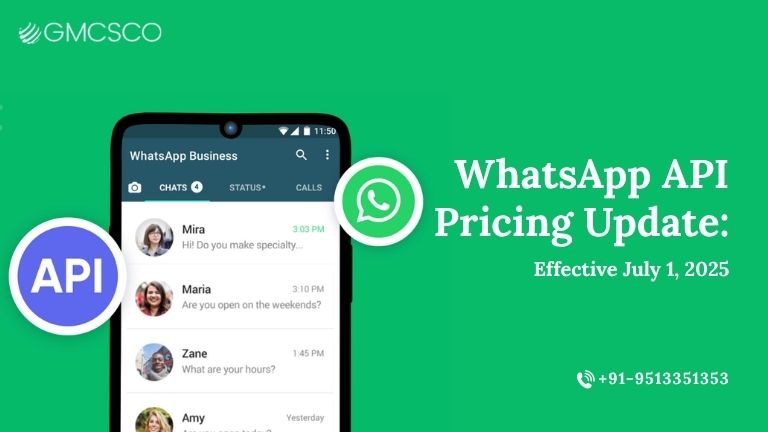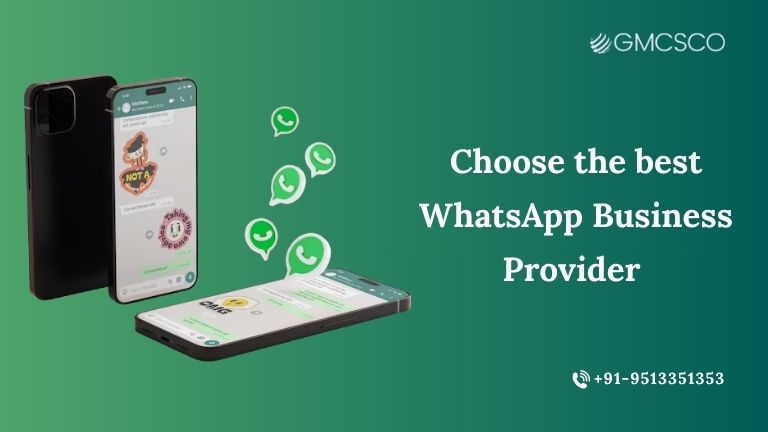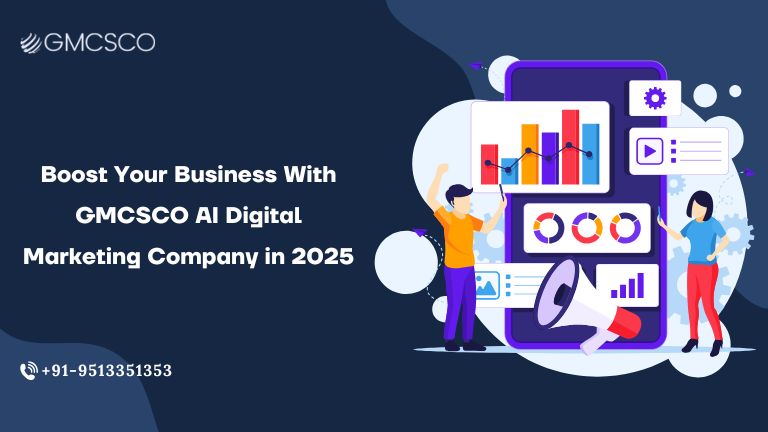How WhatsApp Business API Boosts USA Customer Service in 2025
Whether you like it or not, in 2025, providing great customer service isn’t a nicety, but a requirement for U.S. businesses.” Customers demand on-the-spot service and frictionless transactions, leaving companies in e-commerce, SaaS and other industries to look for cutting-edge solutions to keep up. Introducing the WhatsApp Business API USA, a revolutionary platform for real-time customer support and relationship building. While Meta’s new limitations suspend promotional messaging in the U.S. as of April 1, 2025, businesses can still use WhatsApp for transactional alerts and for interacting with customers, cementing WhatsApp as a buying platform first and foremost. We will explore in this article about how the WhatsApp Business API revolutionizes WhatsApp Customer Service USA And with actionable advice, a case study from real life and why’s it a must-have for 2025. What WhatsApp Business API Means for U.S. Businesses Now, imagine: a customer in New York buys a pair of sneakers from your online store. They have a question about delivery, and rather than hanging on hold or searching through emails, they message you on WhatsApp. In a matter of seconds, they receive a tailored reply, or an automated message letting them know their order is en route. That’s the magic of the WhatsApp Business API USA. With more than 300 million internet users in the U.S., WhatsApp’s 2 billion global users (along with the popularity it is gaining in the United States) is an attractive channel for instant, trustable communication. Unlike more traditional channels, like email (hovering around a 20% open rate) or phone support (which can anger customers if they have to wait to talk to someone), WhatsApp is a conversational, mobile-first experience. On the WhatsApp Business API, businesses can automate responses, plug in CRMs and even send Transactional Messaging USA 2025-style messages for things like order confirmations, appointment reminders or payment updates – all of which is acceptable under Meta’s new guidelines. This isn’t just about speed; it is about trust: in a market place 86% of consumers claim to consider trust when making purchasing decisions (Forbes, 2025). Key Benefits of WhatsApp Business API for Customer Service Here’s why U.S. companies, including e-commerce retailers and SaaS providers, are embracing WhatsApp Business API services USA for customer service five years from now: Real-Time Customer Support Customers hate waiting. In 2025, HubSpot found that 90% of U.S. consumers expect responses in 10 minutes or less for online questions. With the WhatsApp Business API, you can now incorporate real-time chat to instantly answer questions, or connect users to a live representative for more complicated inquiries. For instance, a SaaS company can provide real-time assistance on software glitches on WhatsApp, thus lowering churn and increasing satisfaction. Seamless Transactional Notifications When it comes to promotional messaging on hold in the U.S., Transactional Messaging USA 2025 is the headliner. The API also allows you to generate automated Notifications such as: Order Updates: “Your package will be delivered by 5 PM today!” Schedule dates Greetings: “You are booked for the 3rd of July, 2PM.” Reminders to Pay: “Reminder: You are about to run out of time on your renewal.” These messages engage without feeling salesy, and remain in compliance with the rules set down by Meta while keeping customers informed. Personalized Customer Experiences It uses CRMs (such as Salesforce and Zendesk) for businesses to customize their conversations by leveraging customer data. Picture a shopper who is complaining about a late order and the system pulls up the customer’s order history to solve it: A discount code on the next purchase, perhaps. Personalization creates loyalty, as 80% of U.S. consumers are more inclined to make a purchase from companies that provides them with a personalized experience (McKinsey, 2025). Also Read About Whatsapp Business API UAE Cost-Effective Automation But dealing with your customers’ questions by hand can also be costly. whatsapp business api services USA enables organizations to automate repetitive tasks using bots, which reduces customer service costs by as much as 30% (Gartner, 2025). For example, a chatbot could manage your FAQs like “What is the return policy?” whilst tiering the challenging problems to an agent, reducing both time and resources. Building Trust Through Secure Messaging With WhatsApp’s end-to-end encryption providing security, customer data remains private – an increasingly important consideration in the U.S., where the average data breach costs American companies $9.44 million (IBM, 2025). By relying on WhatsApp customer service USA, companies not only indicate that they take security seriously, but also establish trust and long-term loyalty. Case Study: How a U.S. Retailer Brought Down Support Costs By 15% For example, consider the following real-world scenario. In 2024, GMCSCO, a mid-sized U.S. fashion e-commerce store, experienced high support costs and slow response in the early days. Customers inundated their email and phone lines with questions about the status of their orders and returns, and their customer satisfaction rate fell 12 percent. Early 2025, GMCSCO has adopted WhatsApp for business API. The solution was used to revamp their customer service. Here’s how they did it: Automated Messaging: They integrated the API to send Transactional Messaging USA 2025, such as order confirmations and shipping alerts and decreasing inbound requests by 40%. Chatbot Integration: 60% of routine questions (Like “Where’s my order”) were addressed by a chatbot, freeing agents for more complicated problems. CRM Integration: Integrate WhatsApp with your Shopify CRM to personalize responses like GMCSCO did and increase repeat purchases by 10%. On-Demand Assistance: Technicians addressed immediate questions and concerns within 5 minutes, scoring a 90% client satisfaction rating. The result? Support costs were cut by 15% and they even saw positive customer reviews rise by 20%. Their tale is a testament to how WhatsApp Customer Service USA can alter practices even in the face of Meta’s promotional limits. Also Read About Whatsapp Marketing for Healthcare How to Set Up WhatsApp Business API for U.S. -Based Customer Service Are you ready to implement WhatsApp Business API USA on your business? Here is a step-by-step guide to getting started in 2025: Step 1: Select a
How WhatsApp Business API Boosts USA Customer Service in 2025 Read More »






